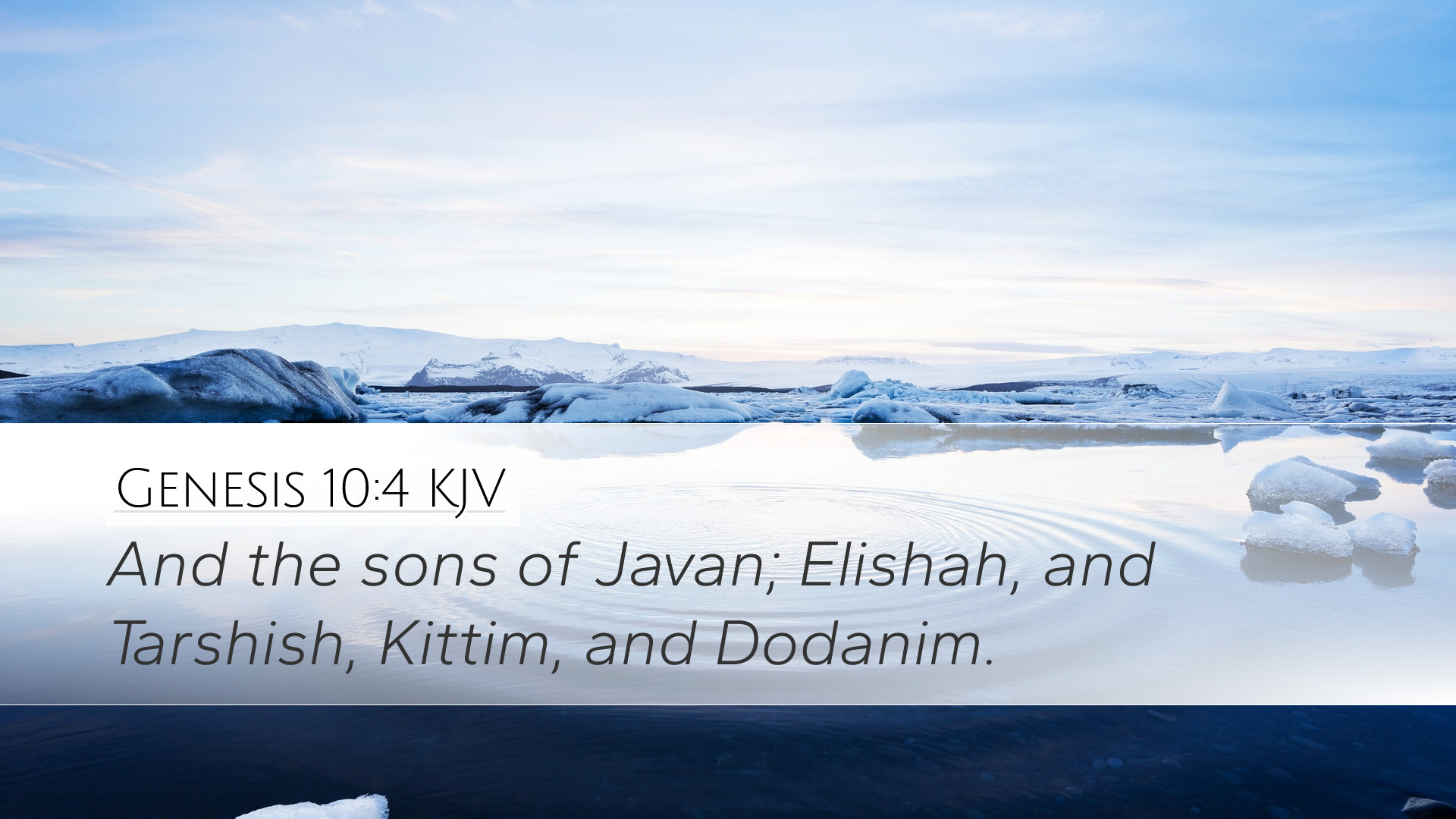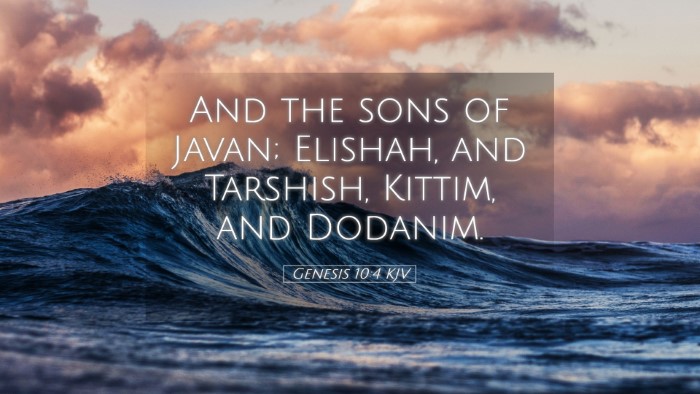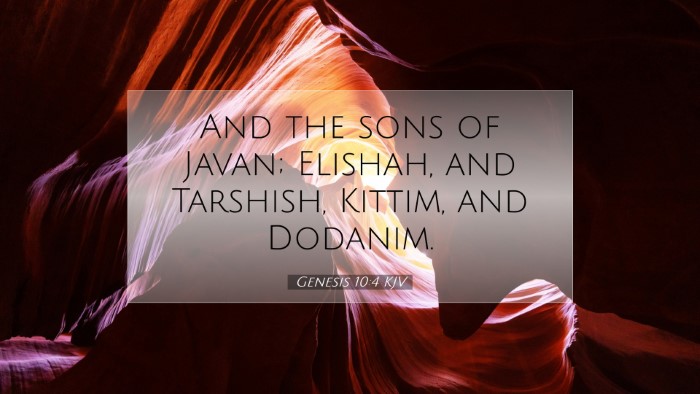Commentary on Genesis 10:4
Genesis 10:4 states: "And the sons of Javan; Elishah, and Tarshish, Kittim, and Dodanim."
This verse provides a brief account of the descendants of Javan, one of the sons of Japheth. The genealogies contained in this chapter not only present the lineage of the people but also reflect the broader movement of nations and their interconnectedness.
Context and Significance
The genealogies in Genesis serve numerous purposes. As noted by Matthew Henry, they validate the historical narratives that follow and establish a framework for understanding the division of nations which is crucial for comprehending the biblical account of mankind and God’s purposes for different peoples.
Insights from Commentaries
-
Matthew Henry emphasizes the importance of genealogy in the broader context of Scripture. He underscores that Javan represents the Greeks, and the nations listed are significant in the ancient world. Each name is a window into cultural and historical connections that shaped the Mediterranean region.
-
Albert Barnes contributes to the understanding of these names. He notes that Elishah is often associated with the Greeks and possible trade connections, while Tarshish is commonly identified with a distant land, possibly Spain. This reference showcases early maritime commerce and the spread of cultures initiated through trade.
-
Adam Clarke provides similar insights, mentioning that Kittim is generally linked to Cyprus and that Dodanim may refer to some offshoots of the people of the sea. Each name hints at a rich tapestry of relationships and geographical positioning that was significant in the ancient world.
Theological Implications
The theological implications of this verse revolve around God’s sovereignty in human history. Although the text appears genealogical and mundane, it is a manifestation of God’s will to spread humanity over the earth. As Matthew Henry points out, “God is the God of families and nations,” indicating that divine governance is evident in the arrangement and distribution of peoples.
Cultural and Historical Context
The names mentioned in this verse do not just occupy space in the text; they are likely to be representative of larger ideas. Barnes posits that understanding these names can lead to insights on trade routes, cultural exchanges, and political allegiances of the time. This verse thus serves as a historical anchor, allowing modern readers to appreciate the intricacies of ancient civilization.
Practical Applications for Modern Readers
For pastors and theologians, this verse illustrates the importance of understanding our historical and cultural roots within the Christian faith. It reminds us that the Gospel is not just a theological doctrine but also a narrative of many nations and peoples coming together under God's plan.
As modern readers, engaging with texts such as Genesis 10:4 invites us to consider our global engagements and outreach. A broader perspective of historical connections challenges us to think about how God is still at work in knitting together diverse groups of people for His glory.
Conclusion
In summary, Genesis 10:4, while seemingly a simple genealogical entry, is layered with rich cultural, historical, and theological significance. The insights from public domain commentaries such as Matthew Henry, Albert Barnes, and Adam Clarke illuminate its meaning. This encourages readers to rejoice in the history of redemption that spans across nations, urging a response of worship and a commitment to the divine narrative.


